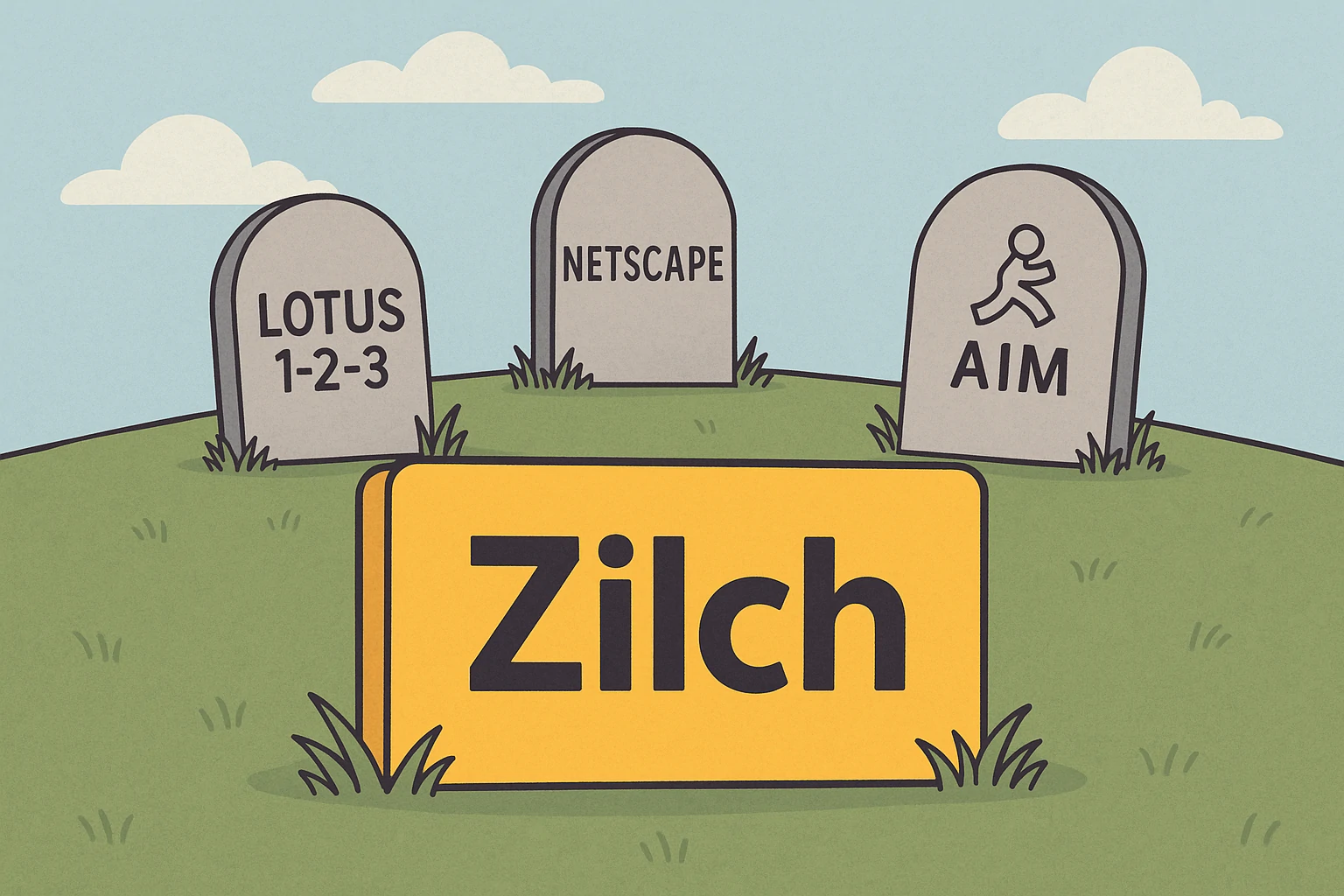I’ve heard it said that if you don’t tell your story, you may not like the story that’s been told. For more than three decades, Zilch debt reduction software has been one of the best kept secrets in the get-out-of-debt space. You can read the full story of how it all began on our About Us page.
Zilch began in 1991 with a simple mission: help people take control of their money and eliminate credit card debt. Quietly, without fanfare, it’s been doing that job ever since. Meanwhile, the software world around it has changed dramatically.
Choosing the Right Foundation for Zilch Debt Reduction Software
The secret to Zilch’s longevity isn’t luck. It’s clarity of purpose and choosing the right tools. I still remember sitting in a college classroom, staring at my professor’s blackboard comparison of C and Pascal. The C code looked cryptic to me. The Pascal code? Clear as day.
I chose Pascal — and I’ve never looked back. That decision set the foundation for Zilch, and thanks to Delphi (Pascal’s successor), Zilch has been able to evolve and remain relevant for over three decades. Just like the software itself, the language choice was about clarity and staying power, not trends.
The Software Graveyard: What’s Gone Since 1991
Here’s just a snapshot of once-mighty apps that have disappeared while Zilch quietly kept marching forward:
| App | Debut | What it was | Status Today |
|---|---|---|---|
| Lotus 1-2-3 | 1983 | The spreadsheet king of the DOS era | Discontinued 2014. |
| Aldus/Adobe PageMaker | 1985 | Early desktop publishing flagship | Retired 2004 (replaced by InDesign). |
| Ami Pro / Lotus Word Pro | 1988 | Word processor (part of Lotus SmartSuite) | Discontinued 2013–2014. |
| HyperCard (Apple) | 1987 | Hypermedia authoring for Mac | Sales ended 2004. |
| ClarisWorks / AppleWorks | 1991 | All-in-one office suite for Mac/Windows | End-of-life in 2007. |
| Lotus Symphony (DOS) | 1984 | Integrated office suite | Discontinued by 1992. |
| Norton Commander | 1986 | Iconic dual-pane DOS file manager | Last DOS version 1998. |
| PC Tools (Central Point) | 1985 | DOS/Windows utility suite | Phased out after Symantec buyout (1994). |
| DESQview (Quarterdeck) | 1985 | DOS multitasking/windowing environment | Ended after Symantec acquired Quarterdeck (1998). |
| Netscape Navigator | 1994 | First dominant web browser | Development ended 2008. |
| Napster (original) | 1999 | Peer-to-peer music sharing | Shut down 2001 (brand later reused). |
| MSN Messenger (Windows Live | 1999 | Instant messaging | Shut down 2013. |
| Yahoo! Messenger | 1998 | Chat client | Retired 2018. |
| AltaVista | 1995 | Dominant early search engine | Shut down 2013. |
| Google Reader | 2005 | RSS aggregator | Retired 2013. |
| Adobe Flash Player | 1996 | Browser multimedia/animation | Retired 2020. |
Why Zilch Debt Reduction Software Outlasted the Giants
Looking back, it’s almost ironic. Entire industries once ran on programs like Lotus 1-2-3, Netscape Navigator, and MSN Messenger. They’re gone now. Meanwhile, Pascal and Delphi — languages many dismissed as “niche” — have quietly endured, just like Zilch.
That’s the real story here: It’s not about chasing trends. It’s about choosing wisely, building steadily, and focusing relentlessly on the problem that matters.
Zilch didn’t just survive the shifts in technology — it thrived through them. That’s the power of Zilch debt reduction software, helping people take control since 1991.
Your Story is Part of Zilch’s Legacy
For over 30 years, Zilch debt reduction software has helped people break free from debt. Now, I want to hear from you:
👉 What role has Zilch played in your journey?
Every story shared adds to the Zilch tradition of hope and freedom. Please tell yours in the comments.

It’s inspiring to see a software sticking with a single programming language for decades, as today most just chase the latest trend, sooner or later. Love your software, and I hope it lasts at least for another decade or two! 🙂
Thanks Luka!